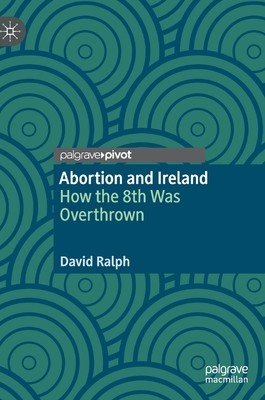
- We will send in 10–14 business days.
- Author: David Ralph
- Publisher: PALGRAVE PIVOT
- ISBN-10: 303058691X
- ISBN-13: 9783030586911
- Format: 14.8 x 21 x 1 cm, hardcover
- Language: English
- SAVE -10% with code: EXTRA
Reviews
Description
This book asks the crucial question of how it came to pass that on the 25 May 2018, the Irish electorate voted by a landslide in favour of changing its abortion legislation that, for the previous thirty-five years, had been one of the most restrictive regimes in Europe. The author shows how, alongside traditional campaigning tactics such as street demonstrations, door-to-door canvassing, and the distribution of pro-choice merchandise and information leaflets, a key strategy of pro-choice advocacy groups was to encourage first-person abortion story-sharing by women in their efforts to repeal the Eighth Amendment, which had effectively banned abortion provision in the country. The book argues that a normalizing of abortion talk took place in the lead-up to the referendum, with women speaking publicly in unprecedented numbers about their abortion histories. These women storytellers were mirroring certain pro-choice movements in other contexts, where a new 'sound it loud, say it proud' narrative around abortion experiences has emerged as a central contemporary strategy for destigmatizing abortion discourse.
Students and scholars across a range of disciplines, including law, gender studies, sociology, and human geography, will find this book of interest.
EXTRA 10 % discount with code: EXTRA
The promotion ends in 18d.23:31:40
The discount code is valid when purchasing from 10 €. Discounts do not stack.
- Author: David Ralph
- Publisher: PALGRAVE PIVOT
- ISBN-10: 303058691X
- ISBN-13: 9783030586911
- Format: 14.8 x 21 x 1 cm, hardcover
- Language: English English
This book asks the crucial question of how it came to pass that on the 25 May 2018, the Irish electorate voted by a landslide in favour of changing its abortion legislation that, for the previous thirty-five years, had been one of the most restrictive regimes in Europe. The author shows how, alongside traditional campaigning tactics such as street demonstrations, door-to-door canvassing, and the distribution of pro-choice merchandise and information leaflets, a key strategy of pro-choice advocacy groups was to encourage first-person abortion story-sharing by women in their efforts to repeal the Eighth Amendment, which had effectively banned abortion provision in the country. The book argues that a normalizing of abortion talk took place in the lead-up to the referendum, with women speaking publicly in unprecedented numbers about their abortion histories. These women storytellers were mirroring certain pro-choice movements in other contexts, where a new 'sound it loud, say it proud' narrative around abortion experiences has emerged as a central contemporary strategy for destigmatizing abortion discourse.
Students and scholars across a range of disciplines, including law, gender studies, sociology, and human geography, will find this book of interest.


Reviews